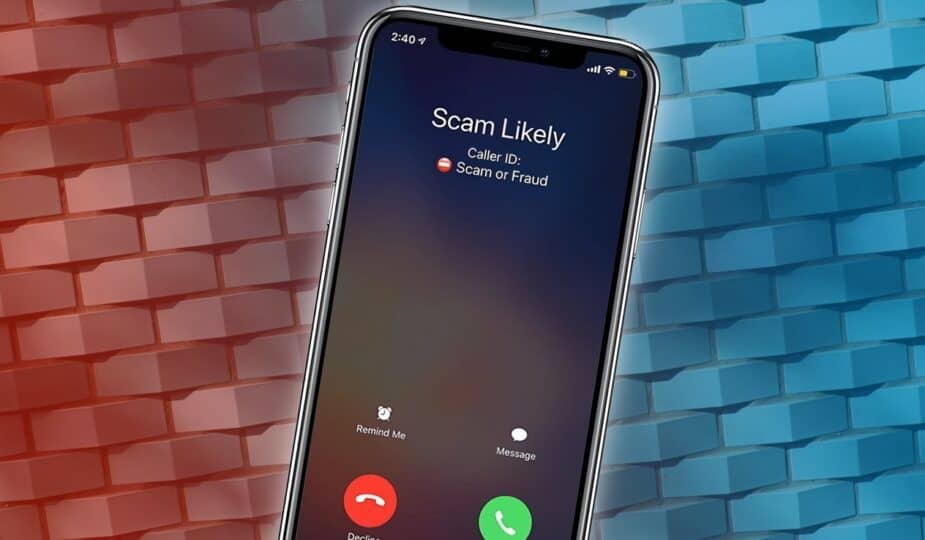Scam calls, texts, messages, and website pop-ups aren't always obvious.
 0 Facebook x.com Reddit
0 Facebook x.com Reddit
A GoFundMe account is accepting donations to help a Wichita, Kansas woman who was caught to a common online scam that started with a text message to her iPhone.
Shauna Perdue lost more than $5,500 after falling for a scammer posing as “Apple Security.” According to local news station KWCH, she first received a text message claiming that her Apple ID had been used to make a purchase, and to call a certain number if she didn’t complete the purchase.
This is a scam that works on volume—countless people will receive the same message. Even if only a small fraction call the number provided, that’s enough to make the scam profitable.
The best option is to ignore the text. If that fails, although there should be no doubt that it’s not Apple, users can Google the phone number to see if it’s really Apple.
It is possible to spoof numbers, however. So again, the best option is to ignore the text — because unless the user is a business or has requested a support call, Apple doesn't call or text people.
How Purdue Lost Her Money
Purdue called the number, and that’s when the scam began in earnest. She spoke to someone who convinced her that hackers would use her Apple ID to empty her bank account.
AppleInsider readers would have already been suspicious, but scammers are very good at being incredibly convincing. What the person said was enough to convince Purdue to do as he said and transfer thousands of dollars from her bank to the Venmo card.
After she did, she was told to use the card to buy gift cards totaling $3,500 from two local Home Depot stores. This should have been another warning — no company would ask anyone to buy gift cards.
It sounds so fishy that it’s hard to believe it works, and yet it does. It works so well that Apple has an entire support page called “Gift Card Scams.”
It certainly worked in Purdue’s case, and unfortunately, because she made these purchases voluntarily and then gave the gift card numbers to the scammers, her bank couldn’t refund her lost money.
She filed reports with the Wichita Police Department and the Federal Trade Commission. But it was after a local TV station reported on the case that a GoFundMe page was created to help her recover.
The Community Comes Together to Help
So far, the GoFundMe effort has raised about $4,840 from 51 donations. Rhonda Chadwick, Perdue's daughter, said she set the $5,500 amount based on the GoFundMe guidelines, but added in a note that her actual losses were “a little more.”
“She is broken inside after this horrible scam. She is angry, but mostly at herself,” Chadwick wrote in her GoFundMe post. “It breaks my heart to see my strong, independent mom go through this.”
Chadwick took to the GoFundMe page to thank those who have donated, saying “you are definitely helping to restore my mom's faith in people and restore her spiritual faith. Your thoughts, prayers, and gifts, although monetary, are priceless to us,” thanking those who have already donated.
Protecting Friends and Family from Scams
Everyone knows someone — a friend or family member — who may be a little naive when it comes to the sources of information they receive from text messages, emails, online pop-ups, or fake websites. It’s important to help protect them from these types of traps and scams.
One of the best ways to help friends and family who may be vulnerable to alarming text or online messages is to share stories like Perdue’s. The general advice to contact friends or family if they receive an alarming notification can serve as a “reality check.”
Broadly speaking, notifications of any kind that prompt people to act urgently to respond to a perceived threat are likely to be online scams. People tend to make rash decisions when they are in a state of panic, and scammers prey on this natural reaction.
Reach out to friends and family who may be vulnerable to such online threats, and if possible, become a “fact checker” if they ever receive claims that they have been infected, hacked, or are under threat in any way. The psychological damage caused by a scam can be worse than the money lost.
With similar scams centered on the use of Apple gift cards, Apple is also advising victims to report their experiences to the company.
Follow AppleInsider on Google News










